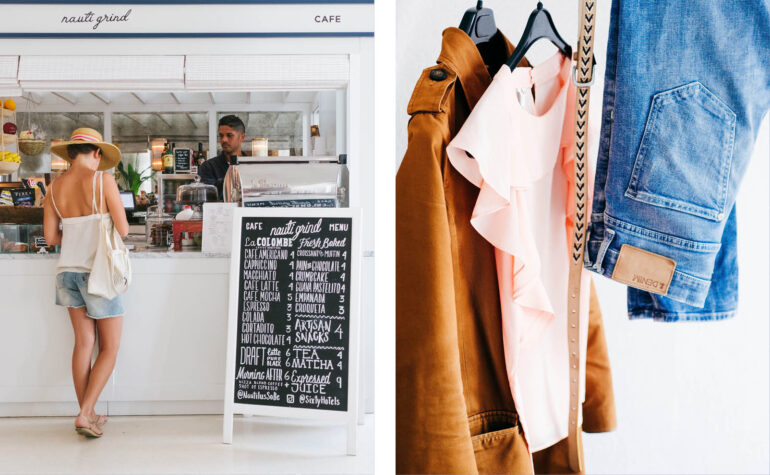Even if you don’t think minimalism is for you, many of the movement’s core values can help you financially—especially if you have trouble sticking to a budget.
A Society in Debt
According to CNBC, “the average American now has about $38,000 in personal debt, excluding home mortgages.” But what is perhaps more frightening is that the average amount of debt keeps growing from year to year—increasing $1,000 from 2018 alone, according to the same report.
Debt can be an overwhelming and never-ending cycle. It can also contribute to chronic stress, which brings with it a whole host of medical problems, from cardiovascular disease to mental health conditions like depression and anxiety. A study by the American Psychological Association (APA) highlights the ongoing strain financial stress puts on many households, with “more than one-quarter of adults (26 percent) report[ing] feeling stressed about money most or all of the time.”
So are we to accept that debt and money worries are just a normal way of life now? Or is there something we can do to break the cycle?
Minimalism and Money
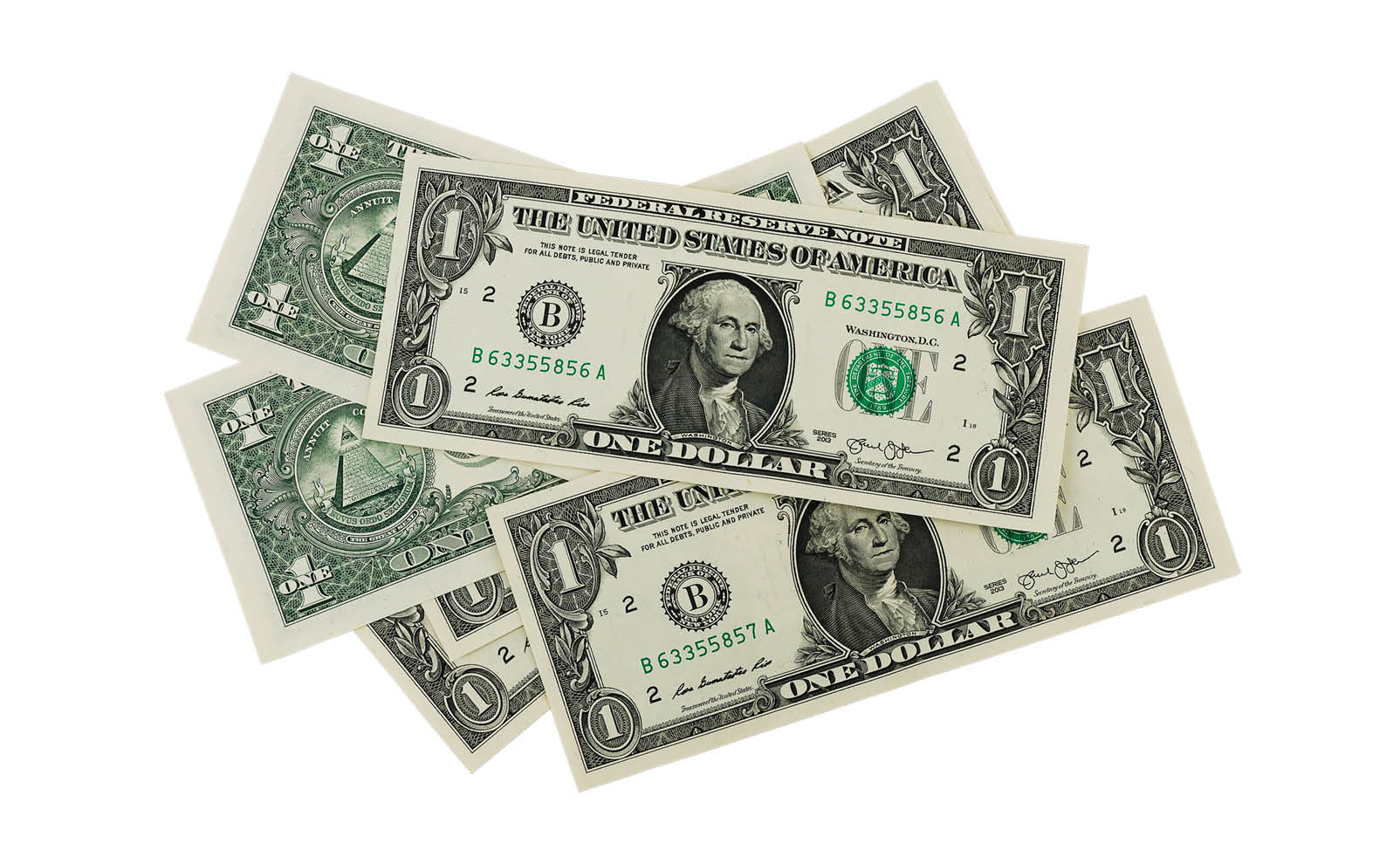
Think about your last five purchases— not including food or experiences. Do you remember what they all are? Are you using these items, or have you yet to take the tags off your most recent clothing purchases? Now think about your first five purchases of this year. Can you name them? Do they still serve you or your home?
Minimalism forces us to analyze what we are spending our money on, and ask whether those purchases align with our core values. Living in a consumer world, where Forbes reports that “digital marketing experts estimate that most Americans are exposed to around 4,000 to 10,000 ads each day,” the line between necessities and wants is easily blurred.
Look at your monthly expenses. Where do you see most of your money going each month? Is there an area where you can curtail your expenses? Are all purchases in each category strictly necessary?
Impose a Shopping Ban
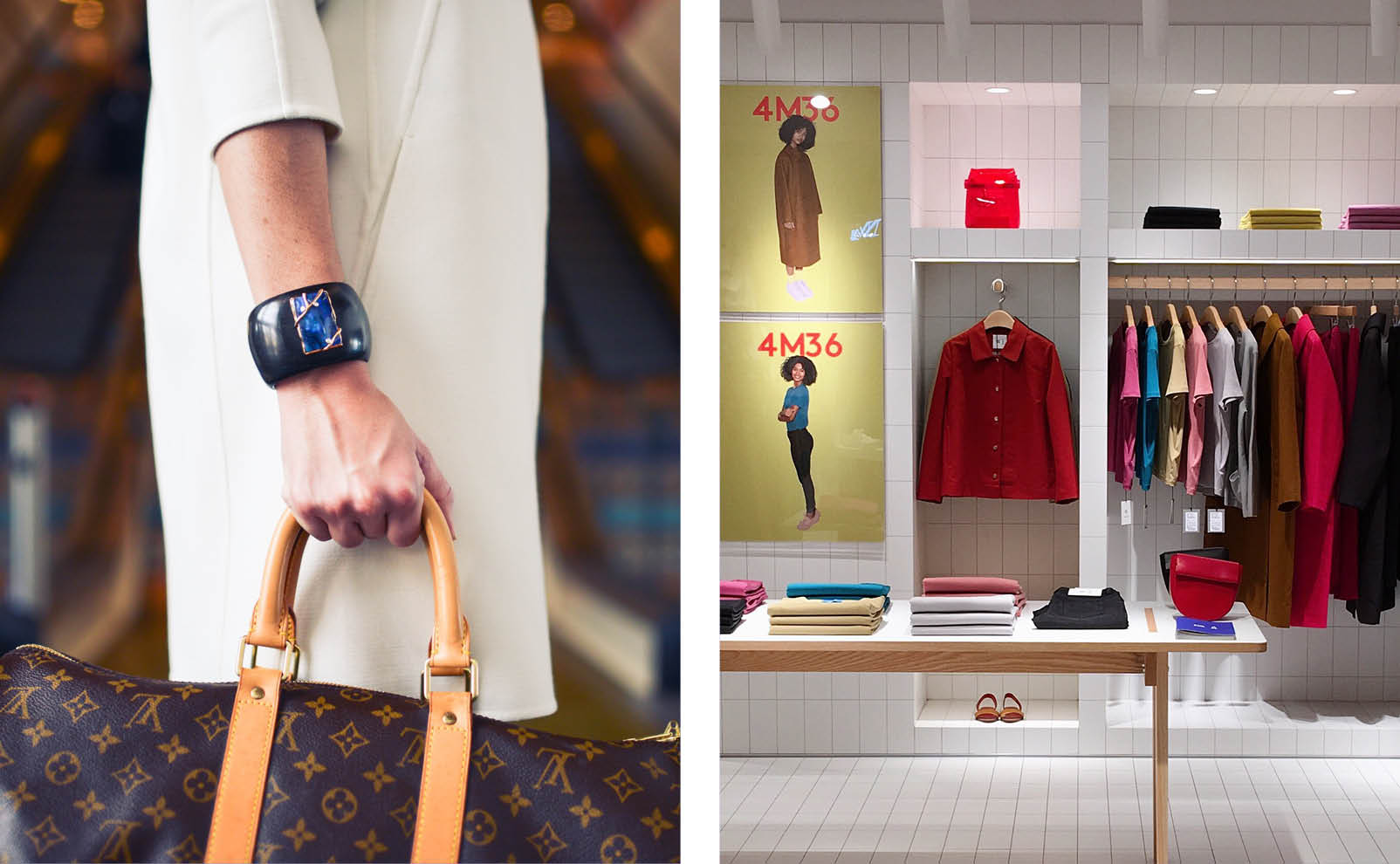
If you’re having trouble identifying what you can and can’t live without and are struggling to cut down on your monthly expenses, consider a shopping ban. This can last for a week, a month, a year or more. The length of time and the items you ban are up to you. Extreme though it may seem, taking this step can help highlight what you need to survive versus what you’ve convinced yourself you need. Plus, it will make you feel more gratitude towards the items you already own.
Get Inspired
To hear firsthand from someone who’s done it, check out The Year of Less by Cait Flanders. Flanders shares her experience of feeling overwhelmed by her stuff, decluttering her apartment and invoking a year-long shopping ban. You’ll hear about her challenges, but also get inspired by how much she was able to save for retirement and how her shopping habits changed over the course of the year. It took willpower, but Flanders came out the other side with more money for the things she really wanted—like traveling and being able to transition to a less stressful job.
Take a Hard Look at Your Housing and Food Expenditures
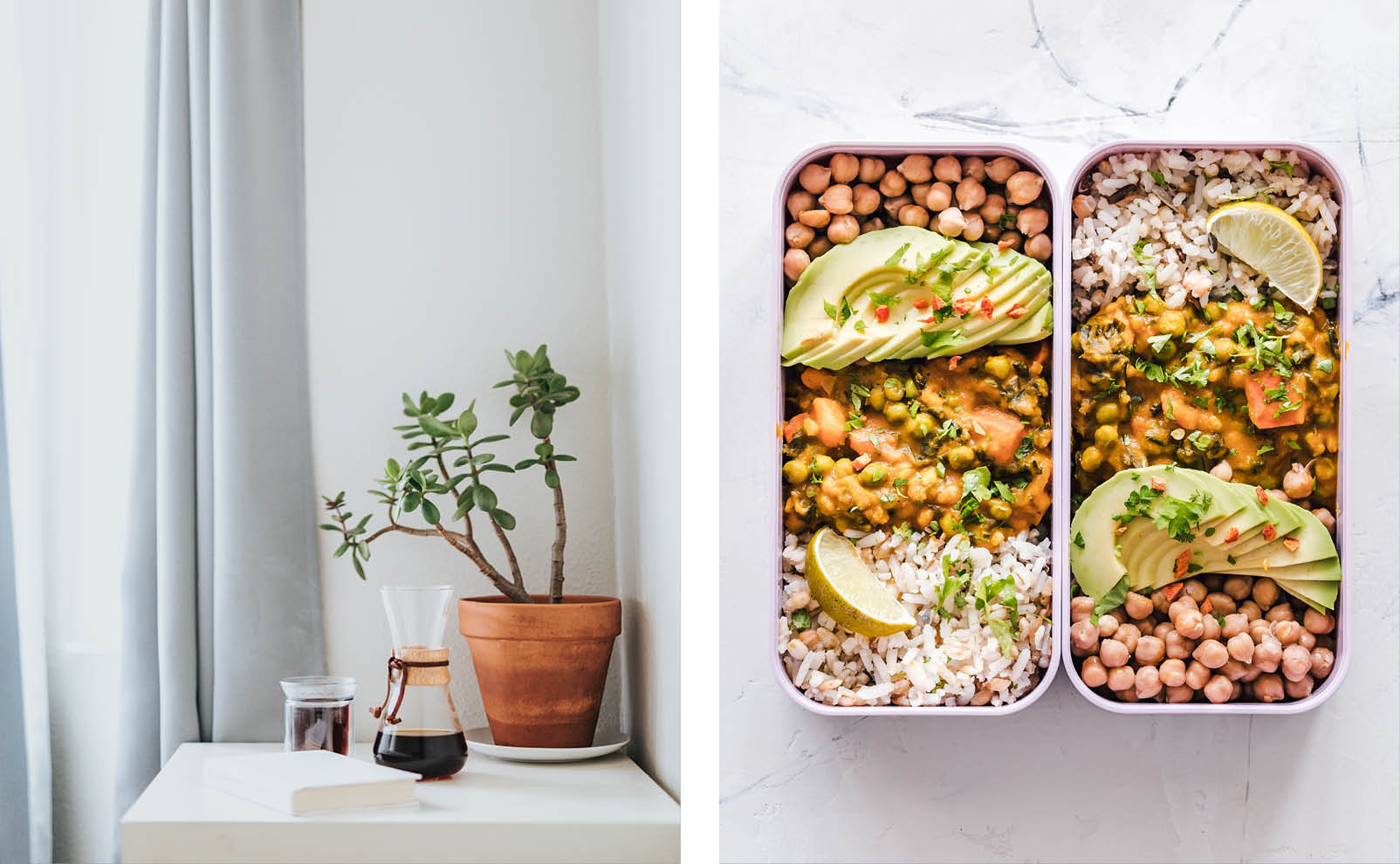
Food and housing are usually the biggest culprits when you look at where your budget takes the biggest hit. This can also be a place to find some of the quickest fixes—cut down on meals out and to-go coffee and you could see a major boost to your budget.
Meal planning is a great way to ensure that you are thoughtful about your meals at home and don’t overbuy groceries and end up wasting food. If you don’t know where to start, it may sound counter-intuitive, but following a low-cost subscription program like WorkWeekLunch can ultimately help lessen your food bill and improve your overall eating habits.
Next look at your housing. There’s been a big movement toward “rightsizing” in recent years—Does your home stress you out or bring you joy? Is it a storage space for your things or a welcome reprieve after a long day of work? Are your mortgage rent payments comfortable, or a stretch each month? Asking these questions—and acting on the answers—can help you to find your ideal living space. Spending some time decluttering can also help you to realize that the space you currently have isn’t too small, it was just overwhelmed in too much stuff.
Less Waste Is Better for Your Wallet—And the Environment
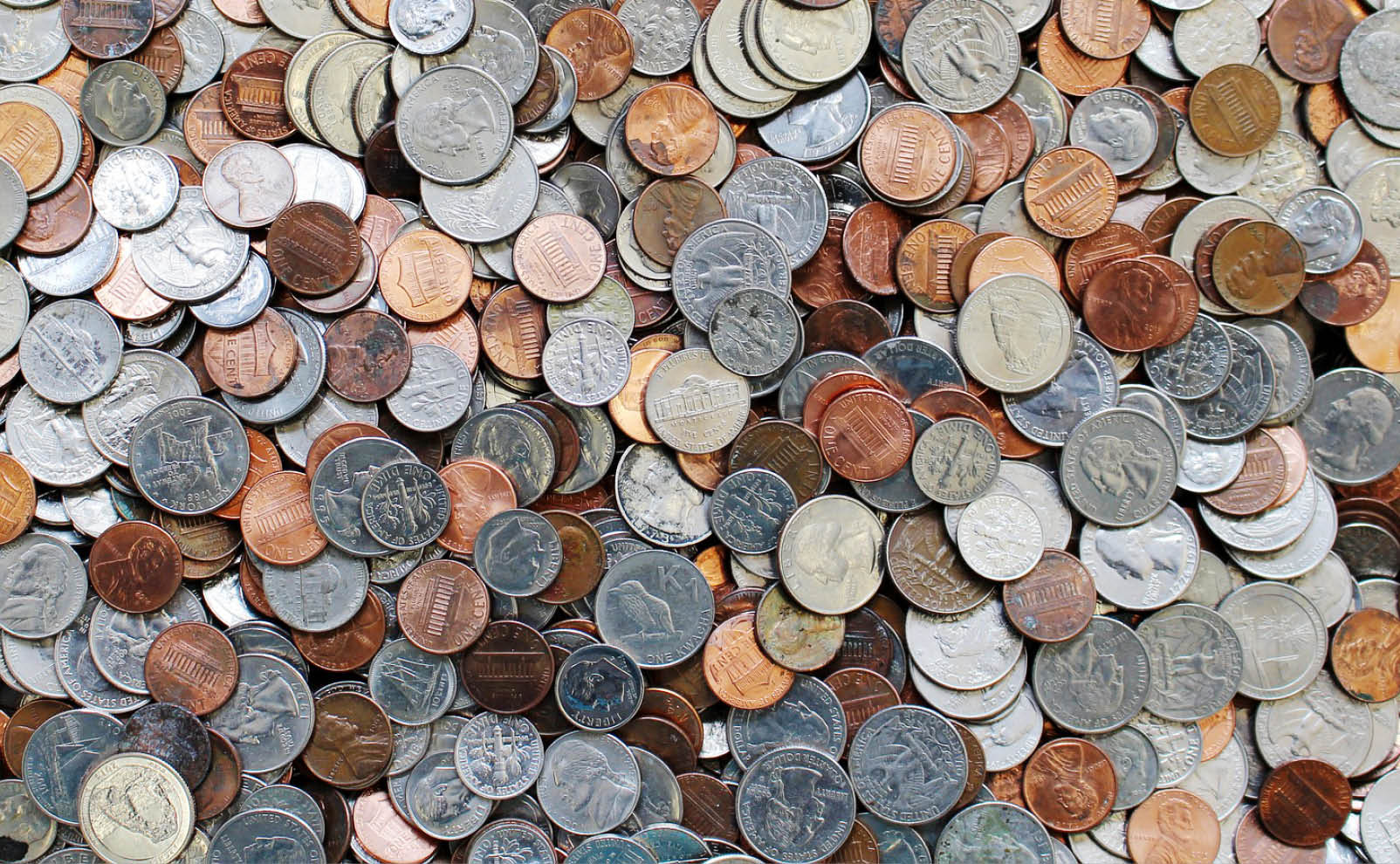
Reducing your expenditures on non-essential items ultimately puts less strain on our earth’s natural resources. According to Learner.org, “every year, the United States generates approximately 230 million tons of “trash”—about 4.6 pounds per person per day.”
If everyone reduced their consumption, this would mean less waste ending up in landfills. It would also lead to a reduction in carbon emissions thanks to fewer non-essential items being transported as far and as often.
You might be thinking that purging your possessions isn’t good for the environment either. But, so long as you take the time to declutter thoughtfully and, more importantly, find these items a new home, you’ll help reduce the amount of waste sent to a landfill. Donate clothes and unused toiletries to a women’s shelter; recreational toys to a Boys & Girls Club; and unused craft supplies to a nursing home, school or daycare. Here’s a handy guide to where to donate absolutely everything.
Learn What Means the Most to You
Taking the time to slow down, learning what you previously spent money on, understanding what your needs vs. wants are and curtailing your expenses to these items, you should find that you actually have more room in your budget for what matters most in your life. And at the minimalist movement’s core is finding what brings you the most joy out of life.
Freeing up space in your budget can help you to pay down your debt, reduce your financial stress, reduce work stress by being able to accept a lower-paying job and focus your expenditures on items that will make you happy in the long-term – not just giving into instant gratification. And don’t we all deserve to be financially happy?
 Lauren Bowman is a travel enthusiast, book lover, and minimalist based in Georgia. She loves experiencing new cultures, trying new foods, lending libraries, and learning about the world around her. Follow her on Instagram/Twitter @lbowmantravels.
Lauren Bowman is a travel enthusiast, book lover, and minimalist based in Georgia. She loves experiencing new cultures, trying new foods, lending libraries, and learning about the world around her. Follow her on Instagram/Twitter @lbowmantravels.
